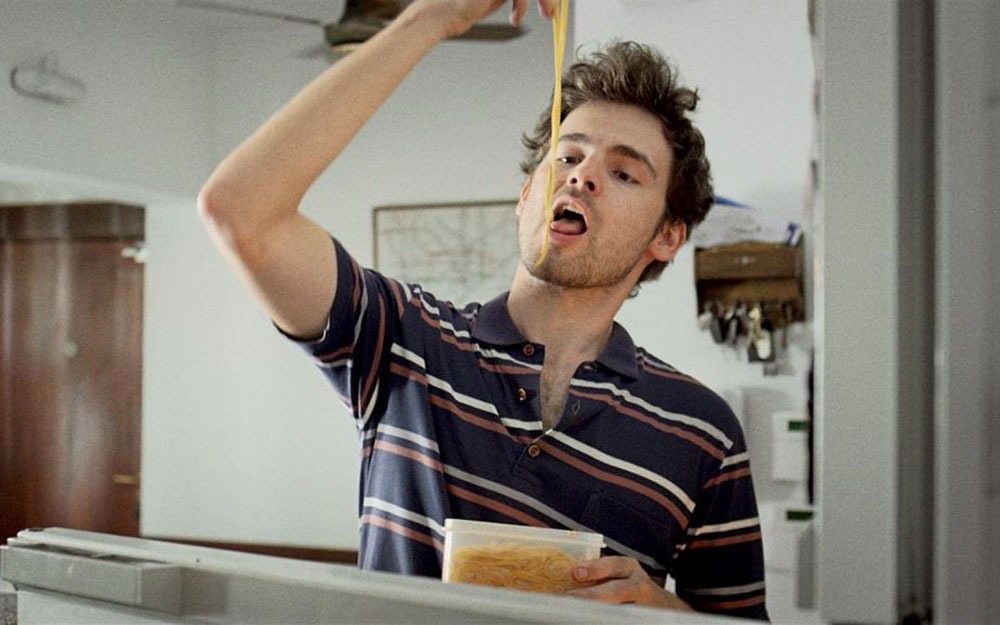Martín Shandly’s About Thirty (2023) is much more than the wry mumblecore it first appears to be; it is a soulful slacker comedy with the apathetic wit of Jim Jarmusch and the braininess of Alain Resnais. The film follows Arturo (Shandly), on what he dubs as “possibly the worst day of my life,” and presents a portrait of loneliness, isolation, and social alienation that is as light as it is affecting. The day in question is that of Arturo’s best friend’s wedding, which also involves a car crash, a tryst with a terrible ex, too much alcohol, getting sexually humiliated in front of his own family, and a likely Covid infection. Much more than these big crises, however, are all of the small problems in Arturo’s life, like tidying up after himself and retaining a career, that have slowly alienated him from others across his adulthood and have caused the general atmosphere of discomfort through which Arturo trudges on a daily basis.
The film a-chronologically traces Arturo’s late 20s and early 30s, from 2017 through 2020, in a series of comic vignettes that offer glimpses of his inability to form long-lasting emotional bonds. These are delivered through quietly massive and often unannounced swings backwards through time—which are reminiscent of Kurt Vonnegut’s Slaughterhouse Five—that gradually leave you with a sense of emotional unmooring apt for a character who is only capable of living life in a gentle stream of chaotic emotional disappointment due to a persistent lack of effort despite his good intentions toward others. It’s as if Arturo himself were behind the wheel, his own uninflected aimlessness treating every event in the same low-key register and letting events slowly pile up one after another until they suddenly become overwhelming. In a moment's notice, we may jump from one of Arturo’s awkward encounters with an ex-friend at the wedding to a sequence of him asking for ritalin from his plant-obsessed psychiatrist years earlier, then to his little sister’s soccer match hours after leaving the psychiatrist’s office, and then back to him being a wallflower on the dance floor. The context and significance of the various episodes and characters in Arturo’s life are kept from us, only to eventually surprise us, as much as him, by the ways in which they reemerge to bite him in the ass.
Shandly plays Arturo with a steely and immature aloofness. He’s the quintessential man-child, too indifferent to make much of an effort in anything and lacking the self-awareness necessary to have a true quarter-life crisis. He’s an uneasy and uncomfortable presence, equally annoying and annoyed, as tired of the other people in his life as they are of him, and while the uncomfortable, unenthusiastic way people look at him only seems curious during the film’s opening scenes, their frustrations become painfully detailed as the film develops. By the time the film reaches its conclusion at the height of the Covid lockdowns, Arturo’s alienating immaturity and self-alienating qualities take on a deeper resonance as he seems surprisingly most himself while self-isolating. He becomes more than just another lovably insufferable cinematic showcase of arrested development—his asocial apathy and economic alienation have turned him into something of an emblem of a 21st century pathology.
About Thirty screens this evening, April 21, at the Museum of the Moving Image. Director Martín Shandly and actress Camila Dougall will be in attendance for a Q&A.



